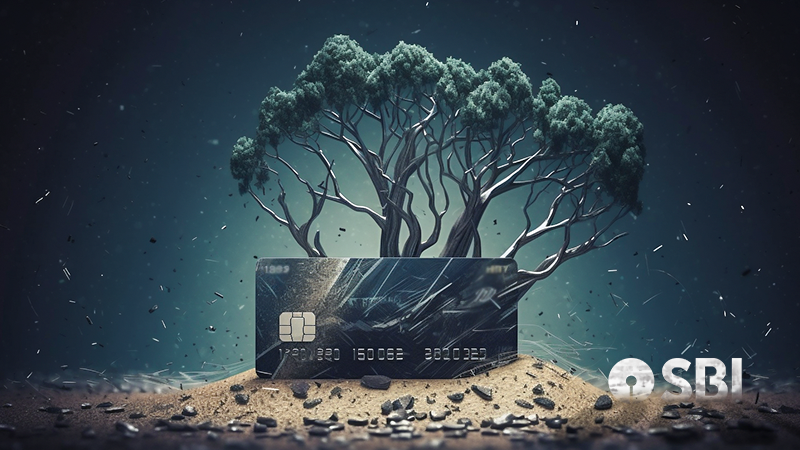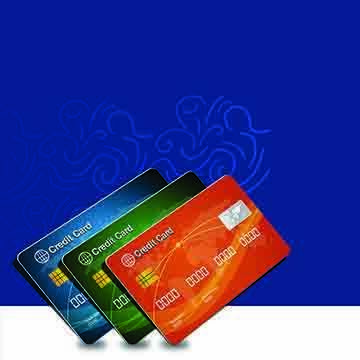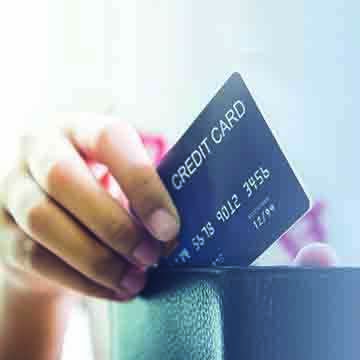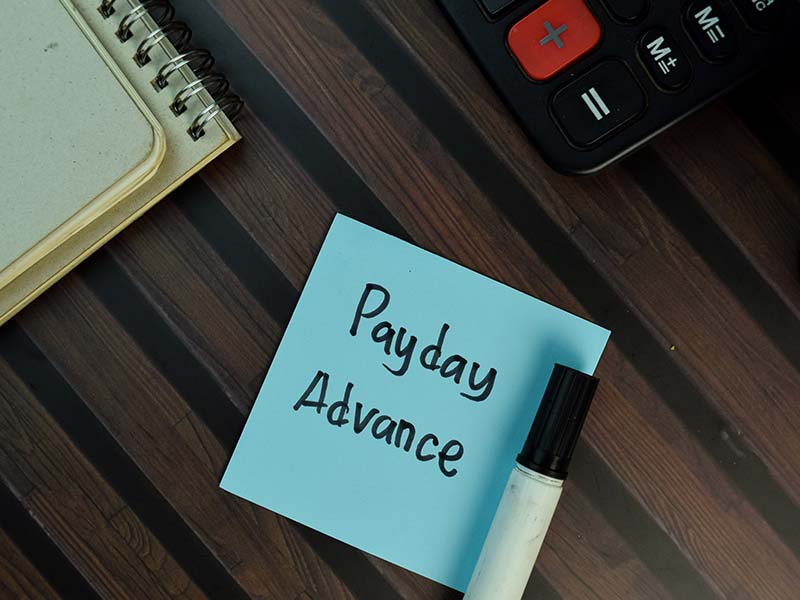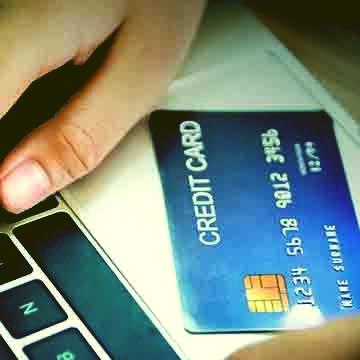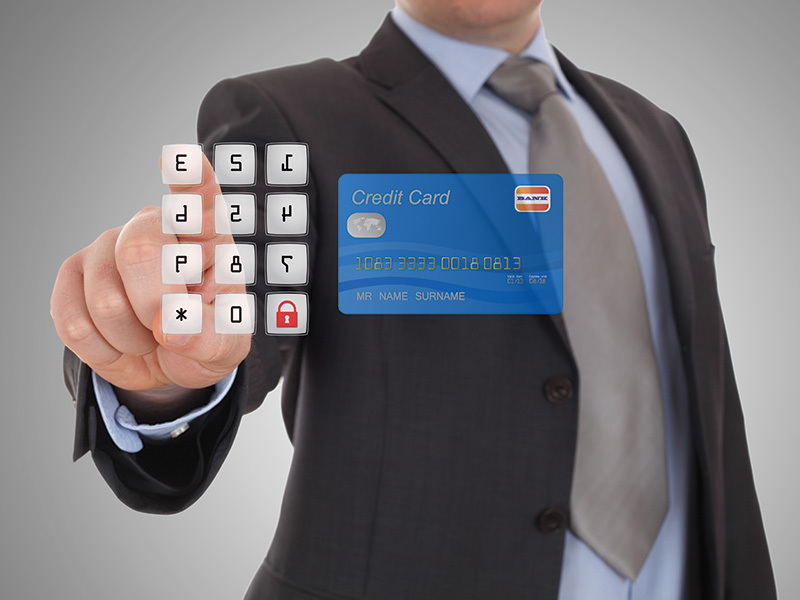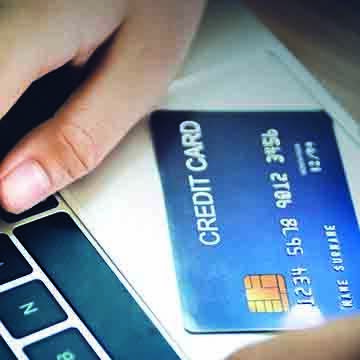
The recent years have changed the way people have carried out their financial transactions. Gone are the days when the majority of transactions were carried out in cash. The recent demonetization, as well as the pandemic, have proved the need and importance of digital transactions and one of the most traditional modes among this is through credit cards. Credit cards have been part of the monetary system for decades and come with a host of benefits making them one of the most attractive digital payments options.
Given below are a few details of credit cards and the ways to use them responsibly.
What is a credit card and how does it work?
A credit card is in the nature of an unsecured loan that is extended to the cardholder by the issuing bank or an NBFC. The cardholder can use this credit to make online or offline payments to merchants or e-commerce websites. The credit card dues have to be repaid by the due date failing which there are many consequences like increased interest payment and negative impact on credit score among others.
The credit limit of a person is decided based on their credit score and other factors like income level, age of the applicant, etc. When the cardholders carry out any financial transaction using the credit card, the amount is deducted from their credit limit. The limit is restored when they make payment of the dues.
Types of credit cards
There are multiple types of credit cards offered by lenders to their customers. Customers can choose from these types based on their individual needs. Some of the types of credit cards are tabled below.
| Type of card | Description |
| Credit card for new users | These are the basic types of credit cards with no additional perks or features |
| Travel credit cards | These cards provide multiple travel benefits like discounts on flight tickets, tie-up with hotels, lounge access, etc. |
| Student credit cards | These are for college students that have usually no credit profile. These cards are approved easily |
| Fuel credit cards | These cards center around fuel benefits in the form of discounts or rewards points, etc. depending on the lender. |
| Secured credit cards | These cards are offered against security in the form of fixed deposits and are good for applicants who do not get credit cards |
| Prepaid cards | These cards are like debit cards where the customer has to load an amount in the account and upon carrying out a transaction, the amount will be deducted from the balance available. |
| Business credit cards | These cards are designed specifically for business or corporate use. The amount is deducted from the corporate account of the entity. |
| Air miles credit cards | These cards provide the benefit of air mile points which can be accumulated to get a flight ticket. |
What are the features of credit cards?
Credit cards are one of the prime products that are offered by banks or lenders. There are many features offered by lenders on these credit cards. Some of these features are mentioned below.
a. Ease of approval
Credit cards are available in many types and from multiple lenders. Lenders require basic KYC documents to sanction a credit card to any customer. Most banks provide complimentary cards to customers who already have an account with their bank.
b. Individual specific card limit
The card limit offered by the lenders depends on many factors like the age of the applicant, the income of the applicant, employment status, relationship with the lender, account history, etc. This limit is therefore tailor made for the cardholders depending on their needs and repayment capacity.
c. Discounts and offers and Rewards
Credit cards come with many rewards and discount offers as added benefits to the cardholders. The calculation of reward points and the amount of discounts offered will depend on the type of card as well as the lender. The general rule, in this case, is higher the spend on cards in allowed categories, the higher the rewards.
d. Security of payment
Credit card transactions are considered to be quite safe as compared to cash transactions. Customers are required to authenticate the transaction using CVV or a 4 digit or a six digit pin depending on the type of bank. Banks also alert the customers in case an unusually high end transaction is being executed from the credit card.
e. Facility of loan
Most banks allow cardholders to avail personal loans against their credit cards. The amount of loan will depend on the credit history of the cardholder and other relevant factors.
What are the advantages of credit cards?
Some of the advantages of having a credit card are discussed below.
a. Ease of transaction
Making a credit card payment provides cardholders with ease of transactions. Cardholders can make the payment for utilities or any other needs within minutes from the comfort of their homes.
b. Easy acceptance of payment worldwide
Credit cards are easily accepted as a payment mode worldwide. All the cardholder needs is international access activated on their cards. This will ease the burden of carrying cash and exchanging currency abroad.
c. Facility to withdraw cash from ATM
Credit cards also provide the facility to withdraw cash from ATMs in case of emergencies. Such withdrawal is subject to interests being levied from the time of withdrawal till it is paid back to restore the credit limit. So, carry them out only in case of extreme emergency.
d. Access during emergency
The recent pandemic and the demonetization have time and again proved the need for digital money and credit cards are the easiest and most convenient way for the same. It can provide easy access in case of any emergencies thereby reducing the burden of the cardholders.
e. Improvement of credit score
Having a credit card and paying the dues on time builds sound credit history. This credit history is the first point of reference for lenders when a person applies for any loan. Hence, it is essential to pay all the credit card dues on time to ensure the credit history is not negatively impacted. Don’t get mistaken by the Minimum Amount Due shown on your credit card statement. You will have to pay the statement amount in full each time before the due date.
f. Facility to transfer the balance to another card
Most lenders also allow the balance of one credit card to be transferred to another, especially in the case of add-on cards. This reduces the burden to track the due dates of various cards and thereby helps in making timely payments.
g. Ease to resolve transaction dispute
Credit cards bills are sent to the cardholder after every credit cycle. This helps them to track their expenses and also report any fraud or error in their amount due or the balance and is an efficient tool in resolving any disputes.
What are the limitations of credit cards?
While credit cards have multiple benefits, they also come with many limitations. Some of such limitations are mentioned below.
a. Excessive interest rate
Credit card interest rates are among the highest in any other line of credit offered by lenders. It is therefore essential to ensure that the dues are paid on time to avoid the excessive interest cost.
b. Debt trap
Having a credit card helps to meet immediate financial needs without having to pay cash upfront. However, it is very easy to fall into a debt trap through credit cards. Many times cardholders only pay the minimum amount due to restore their credit limit. Such consistent behavior will increase the interest cost on the credit cards making it eventually difficult for the cardholder to meet their commitments.
Default in paying credit card dues is also reported to credit rating agencies which negatively impacts the credit report and the credit score effectively closing the doors to a new line of credit. Hence it is essential to be cautious of the debt trap of credit card.
c. Risk of fraud
The risk of fraud through credit cards although low is always present. It is important to not disclose the CVV and the PIN to any other person to ensure the safety of the card.
d. Fees and charges
The fees and charges on credit cards are quite high which often outweigh the benefits or the rewards offered by the credit cards.
f. Possible negative impact on credit score
Credit cards have a direct impact on the credit score of the person. Any adverse use of the credit cards or default in payment of dues will negatively impact the credit score and harm the credit profile of the cardholder.
Conclusion
Credit cards are an essential part of today’s world no matter the limitations and the cost. It is necessary to use the credit cards in an effective manner to ensure that the credit profile of the cardholder is good and the credit score is not adversely affected. Credit cards ensure quick and safe transactions at the same time provide many benefits in the form of discounts, cashback, and rewards to the cardholders.
FAQs
1. Can a person hold more than one credit card?
A. Yes. There is no restriction on the number of cards that can be held by any person. However, they have to ensure that the dues for each of them are paid on time.
2. Is it necessary to have an account with the bank to hold their credit cards?
A. No it is not mandatory to hold an account with the lender to have a credit card.
3. What is the usual rate of interest on credit cards?
A. The rate of interest on credit cards varies based on the guidelines of every lender. The usual rate of interest is approximately around 40% per annum.
4. What is the minimum amount due?
A. The minimum amount due is the base amount of the credit card dues that is to be paid to maintain the credit limit of the cardholder. It is usually 5% of the total amount due for any period.















